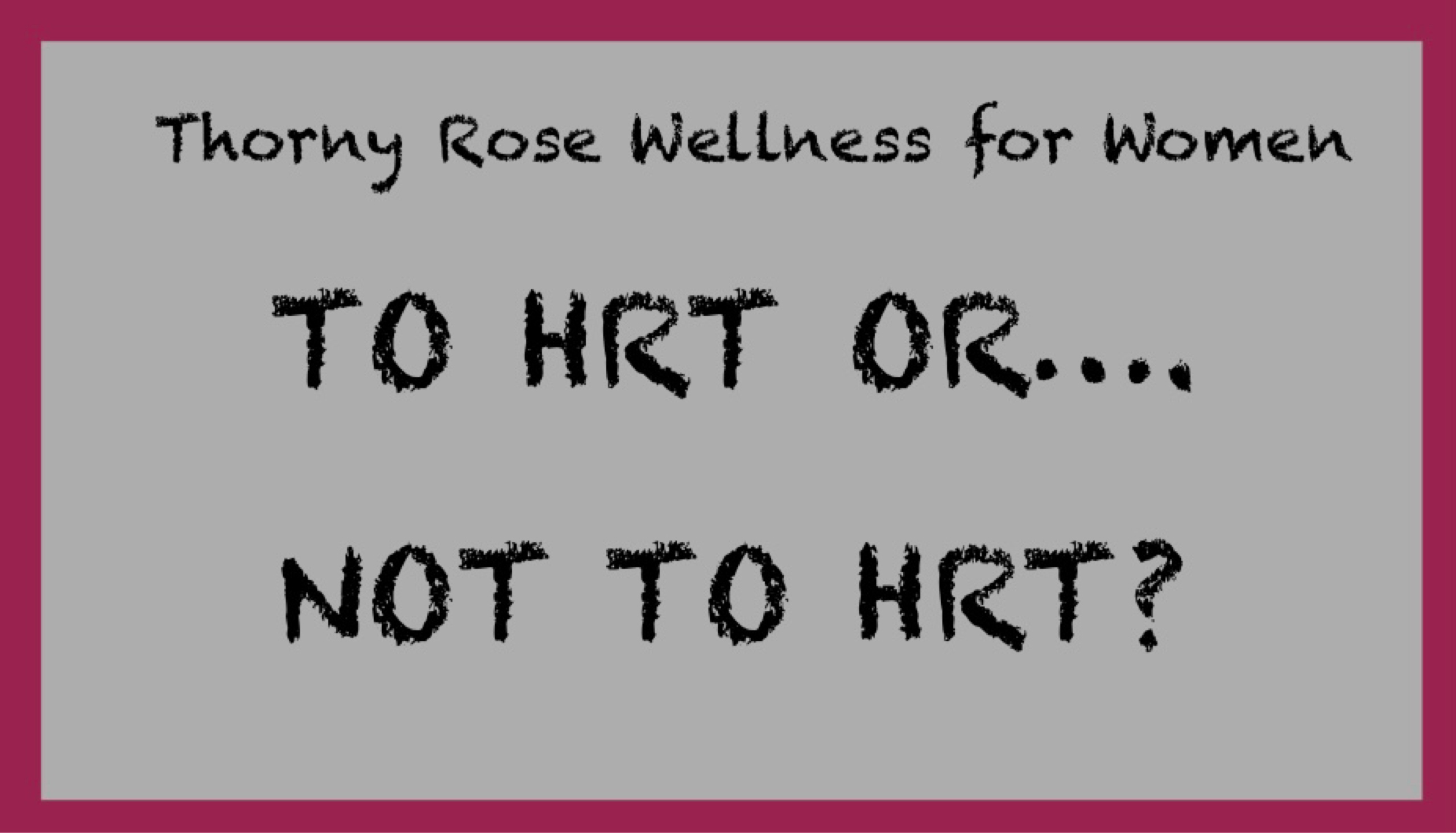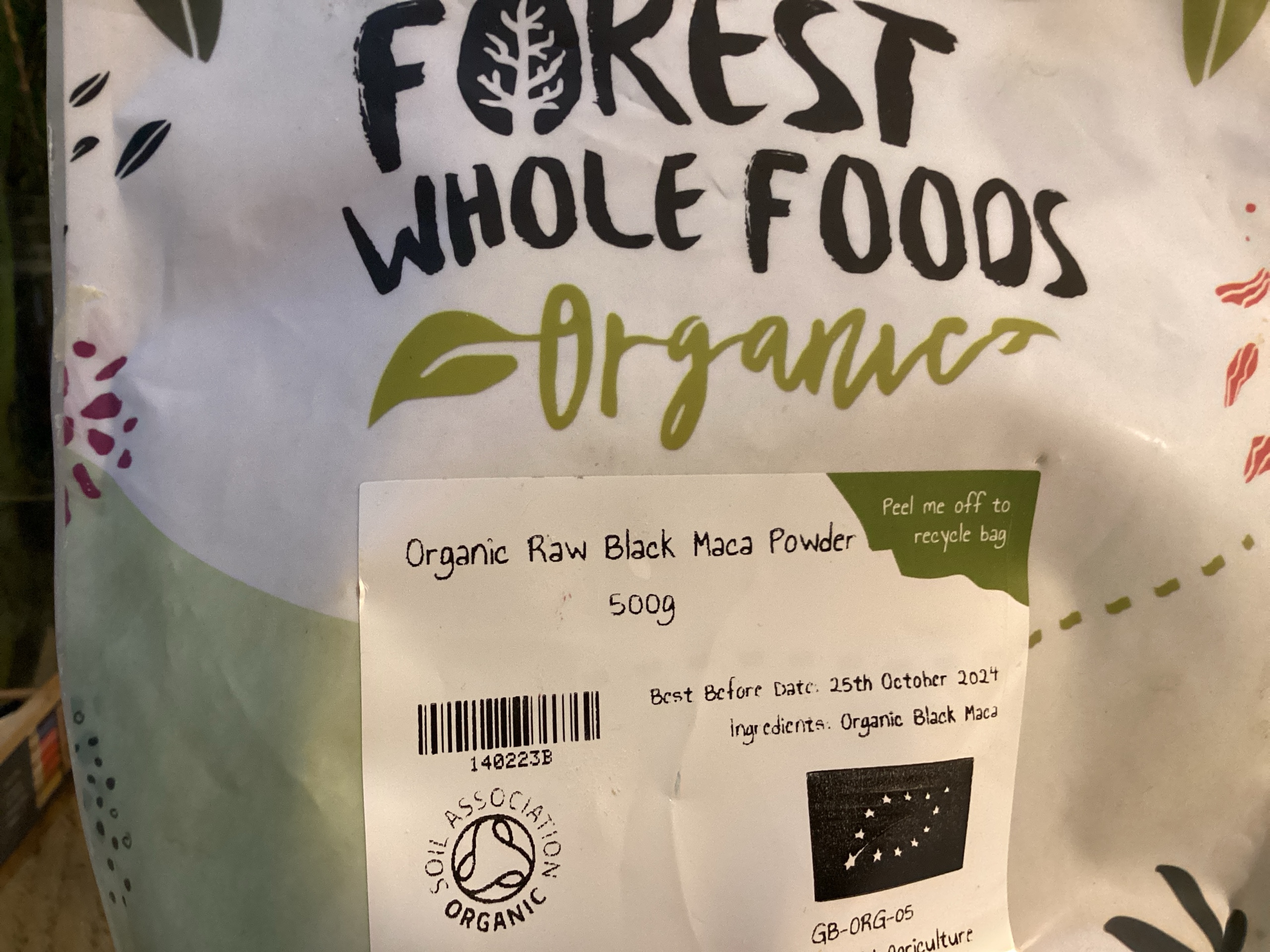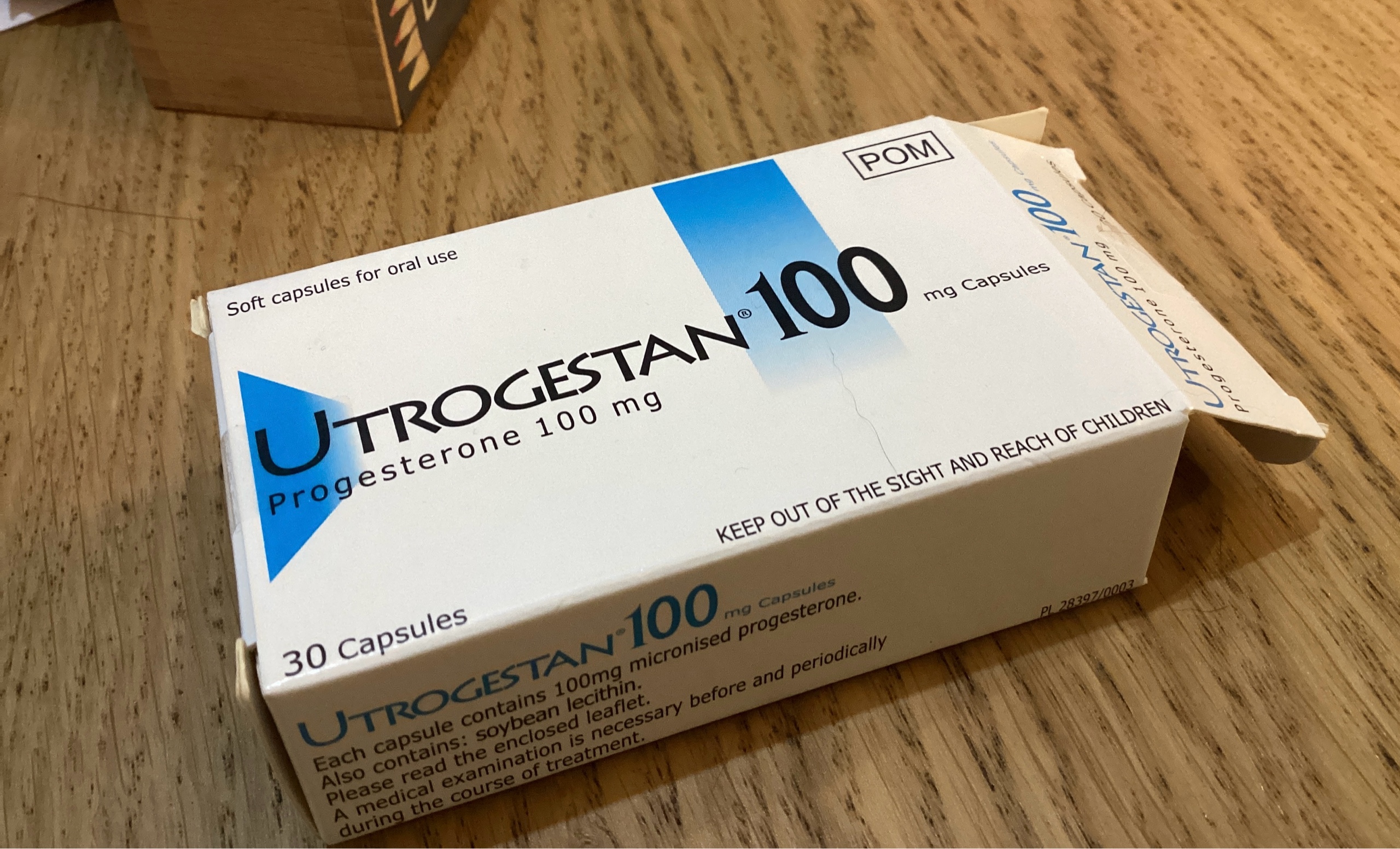To HRT or not to HRT? That is the question.

We’ve had a look at what the three main sex hormones - estrogen, progesterone, and testosterone- do for us, outside of the obvious of regulating the reproductive cycle. They have key roles in many areas of our lives, including:
Mood enhancement and protection against anxiety and depression
Energy production
Muscle and other connective tissue growth and conditioning, including that of cardiac muscle
Temperature regulation
Improving bone and muscle density
Mental cognition, reducing brain fog and improving cognitive abilities such as memory and spatial awareness
Sleep regulation
Anti-inflammation
Immune system support
Red blood cell production
During the perimenopausal years, the unbalancing of the sex hormones leads to some very unpleasant symptoms, many of which diminish when the hormones settle down to the very low levels of post menopause. These low levels means we aren’t getting the benefits we previously were, and this can lead to many women feeling depleted. We have some options as to how we deal with this: hormonal, non-hormonal, or a combination of the two.

I think it’s probably fair to share some of my journey, here, because I think it might resonate with some of you.
I’ve been very fortunate to have a quite predictable and manageable cycle throughout my life. Very little pain, and really I’ve not been massively inconvenienced each month by mood swings or changes in energy levels. If I had my time again, I would work more with my cycle and embrace what it has to offer, but I mostly just ignored it and got on with life.
In my early twenties I went on the pill for birth control, and it didn’t suit me at all. My (now) husband could detect a pattern of monthly emotional overwhelm but to me it felt so real and I was incensed that he would blame it on the hormones. I did however feel very odd and came off the pill quite quickly, and found the world had become a lot less troublesome when I did! This early experience with taking hormones definitely informed my decision-making process when it came to the menopause, but I have come to realise that the two situations are very different.
I also had a relatively easy time of it when I entered the perimenopause. The key word here being relatively. I had the sleepless nights, the brain fog and memory loss, the heart flutters, the anxiety, the aches and pains and the *rage*. It’s the rage I remember as being the most shocking. The fury I could feel at some minor thing a family member had done or hadn’t done was shocking. I am glad that none of them were ever there when I found whatever minor misdemeanour that had been committed. Not because I was out of control but because mostly it was hardly worth mentioning, let alone getting cross about!
I started on maca root and found it almost miraculously helpful in regulating most of the symptoms. I embarked on a very consistent exercise programme, and ate even more healthily than before. I also cut way down on alcohol. Not that I was a heavy drinker, but I was a regular drinker and I just had a feeling that it probably wasn’t very helpful. I upped the intensity of the exercise I was already doing - I sort of intuitively thought that perhaps my body needed a bit of shock so as not to settle too easily into the menopausal state. I don’t know if that makes any sense to you?!
I did a fair amount of resistance and impact exercise, to promote bone health, largely provided through my new found interest in self defence! I didn’t really want to take hormones, so I ate as many phytoestrogens as I could. Having been a vegetarian since the age of 12, I have consumed a lot of tofu, which some credit with helping Japanese women negotiate this time with such relative ease.
When I got out the other side of the perimenopause, I still felt I was doing ok, but I began to feel, as I prepared for the intense Urban Combatives Seminars, that I was making life more difficult than it needed to be. Women are already physiologically challenged in such an endeavour, but a menopausal woman, without the benefit of those three main sex hormones, is at even more of a disadvantage. It’s so hard to put on any muscle, and the connective tissue is put under a lot of strain, not to mention the brain fog and forgetfulness, and I couldn’t really think why I was so averse to taking hormones to replace the ones my own body used to make.
Mostly, after my birth control experience, I was worried about side effects. I was fearful I think that hormone therapy might come with health risks (most of which have been debunked*), and of course I wasn’t going to take a product made from pregnant mare’s urine (not a thing by and large anymore). As I looked into the situation a bit more carefully, I found that my concerns around bone and muscle density loss were much more founded, and that taking hormones might well increase the benefit of the resistance and impact training I was doing.
So I booked an appointment to see my GP, told her what I wanted, and in truth I am feeling pretty good. I am on a low dose of estrogen via a gel, and take progesterone in the micronised form Utrogestan, which has massively improved my sleep. I’m still carrying some menopausal belly fat which I am hoping will diminish when my reserves of estrogen build up. I do feel generally better oiled, if that makes sense, less creaky and grindy.
If I still feel improvements could be made, after a few months, I'll consider investigating getting hold of some testosterone. I would need to go via a private consultation, but it could well be worth it for the extra vitality and brain function.
I wouldn’t say I’m anything like as evangelical as Davina McCall is about it. I do think many women can manage really well without hormonal intervention, and of course not everyone can take HRT. But I do also see a lot of women struggling hugely in the day to day and it makes me wonder: why there is so much resistance to taking HRT?

Where are you at with this? Managing fine? Struggling? Not at that stage yet?
Have you wanted to access HRT but found it hard? The “try to tough it out” paradigm is alive and well in the medical profession, and there is still lots of “you can’t take it forever” talk, which turns out to be untrue.
I’m going to leave it there for now on the hormone front, with this summary. During the perimenopause, taking HRT smoothes out the peaks and troughs of the hormonal imbalances caused by a more erratic cycle, and in doing so alleviates the worst of the symptoms, especially those around anxiety and thermoregulation. During the menopause, HRT simply provides levels of hormones that are no longer being produced by the ovaries, and in so doing returns much of the benefits provided by those hormones. If one protocol isn’t working, there are other methods which might perform better. Dosages may need adjusting, and some people will get on better with one form of delivery than another. “Body identical” hormones may be more easily processed than “synthetic” hormones, and transdermal methods mean the liver is not involved in the processing. However, in the case of progesterone, the metabolites that result from Utrogestan improve sleep considerably in a big proportion of the women who take it that way. The cancer risks are very small and for some cancers, HRT is protective. The warnings on the packets have not been updated.
When looking at non-hormonal approaches for dealing with issues arising from the perimenopause and the menopause, it makes sense to consider the impact of those particular issues and address them accordingly.
For instance, if the issue is sleep, we have already looked at lots of ways to improve sleep, which will still help even if there’s an underlying hormonal imbalance. See Sleep is the New Sex for more information.
If the concern is low bone density, there are supplements, such as Vitamin D and magnesium and calcium, which help with bone density, and appropriate impact will help stimulate the blastocysts. It would be a marvellous thing to have a bone density scan earlier in life and then at regular intervals to check for significant changes in bone density. This is of course something that could be done privately, if funds allow.
If the issue is around anxiety, adaptogens that work on the Hypothalamus-Pituitary-Adrenal axis are a good place to start, and CBT, meditation, CBD, cold water therapy, breathwork can be very helpful.
Just because the hormones are protective of connective tissue health, doesn’t mean we can’t improve our connective tissue health by taking, for instance, collagen. Also, appropriate exercise (such as we use here at Thorny Rose Wellness) is very beneficial for the connective tissue.
Sometimes it comes down to cost. In the UK, hormone therapy is close to free. The supplements we might take to get the same results can become prohibitively expensive.
A good diet is going to be the baseline for improved health whichever other approach you take. Ensuring that all the essential nutrients are in place, as well as promoting a happy gut microbiome will go a long way.
As will exercise. Exercise has so many benefits but the issue can be that women who are low in energy will find it hard to incorporate adequate exercise into their lives. Sometimes it’s a question of getting a good level of basic wellness established to create a good foundation for more energetic activities.
Elasticity of the blood vessels is important for cardiac health, and the hormones were protective for that, but good cardiovascular activity can help. It’s also true that cold water therapy helps with the tone of the blood vessels (all that vasoconstriction and then vasodilation) so that’s another valid approach.
We haven’t mentioned collagen and the other various proteins, yet - coming up next week.
We will investigate some of these approaches more over the coming weeks. Do let me know if there's something you want me to cover in more detail.
Why the cancer risk identified in the 2002 WHI study can be discounted:
*The Women's Health Initiative (WHI) study, 2002, faced criticisms and challenges that influenced the interpretation of its findings. Some limitations and considerations include:
1. Age of Participants:
- The average age of women in the WHI study was around 63 years when they began hormone therapy. This raised concerns about the generalisability of the findings to younger women or those closer to the onset of menopause. Subsequent analyses suggested that the risks and benefits of hormone therapy could vary based on a woman's age and time since menopause.
2. Type of Hormone Therapy:
- The WHI estrogen plus progestin study investigated a specific combination of hormones. The use of conjugated equine estrogen combined with medroxyprogesterone acetate (a synthetic progestin) was the focus of this study. The findings were not necessarily representative of other forms of hormone therapy, such as different estrogen formulations or estrogen-alone therapy.
3. Duration of Intervention:
- The study duration was planned for a more extended period, but it was stopped early due to an increased risk of certain health outcomes, including breast cancer, coronary heart disease, and stroke. The premature termination led to questions about the long-term risks and benefits of hormone therapy.
4. Baseline Health Status:
- Women in the WHI study had varied baseline health statuses. The inclusion of women with pre-existing health conditions raised challenges in determining the impact of hormone therapy on specific subgroups.
5. Confounding Factors:
- The study faced challenges in accounting for confounding factors, such as lifestyle choices, which could influence health outcomes independently of hormone therapy.
6. Non-Bioidentical Hormones:
- The use of non-bioidentical hormones in the WHI, particularly the synthetic progestin medroxyprogesterone acetate, sparked debates about whether the results were applicable to bioidentical hormone therapy, which has a molecular structure identical to hormones naturally produced by the body.
7. Shift in Focus:
- The initial emphasis on hormone therapy as a preventive measure for chronic diseases shifted as a result of the study. Subsequent research focused more on the use of hormone therapy for managing menopausal symptoms rather than long-term disease prevention.
Cancer Research UK states that for most people, the benefits of taking HRT outweigh the risks. I need to track down the statistics again, but the risk of cancer is increased more by drinking even moderate amounts of alcohol, or by being overweight, than by taking HRT. There is no obligation to take HRT, of course, but if cancer risk is the issue, and you don't already have an estrogen-receptive cancer, it might be worth delving more deeply into the risk factors before making a decision.